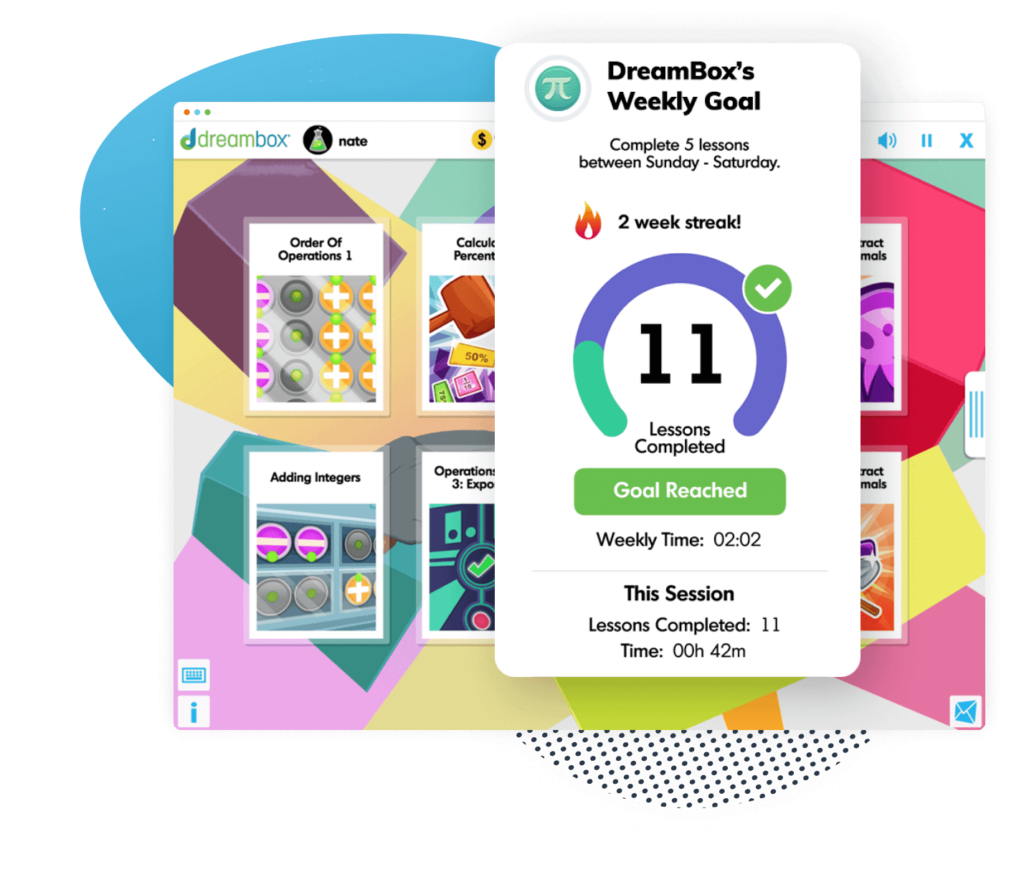How to help a kindergartener with math
Here are the top 10 ways to offer kindergarten math help, sparking their curiosity from the get-go!

Author
Michelle Griczika
Published:
Oct 2024
Key takeaways
- • Integrating math into everyday activities like counting steps or recognizing shapes in nature can make learning math playful and relatable for kindergarteners.
- • Celebrating small victories, even in simple tasks, boosts your kindergartener’s confidence and fosters a positive attitude toward math.
- • Teaching kindergarteners to count in creative ways, such as counting toys, fingers, or steps, is fundamental to building a solid foundation for their future math skills.
So, your child is diving into math – exciting, right? But are they finding it a tad challenging? It’s not uncommon! Sometimes the usual culprits like not enough sleep or a hectic day can make math feel like climbing a mountain for them. Being clued in on what’s being taught in kindergarten math helps you find the spots where they might need a leg up. We will go over ten ways to help your kindergartener excel in math
10 ways to help your kindergartener with math
Math help for kindergarteners is simpler than you think. It just takes time, patience, and a bit of creativity. Take a look at our recommendations for kindergarten math help and try them out with your child this week.
1. Count together
Spend moments counting everyday objects like fruits, toys, or steps while climbing the stairs. This is a simple and engaging way to build their counting skills. Not only does counting sharpen their number sense, but it also teaches them the practical applications of math in everyday life.
Table of contents
Strengthen your math skills with DreamBox
Kindergarten Math Resources
See how DreamBox can help your kindergartener with math.
2. Introduce shapes
Make shapes come alive! Use blocks, cut out paper shapes, or find shapes in nature. Share the joy of identifying circles, squares, triangles, and more. When you’re out and about, point out different shapes you see and ask your child to name them. This helps them relate shapes to the real world.
3. Encourage curiosity with questions
Encourage their curiosity by asking open-ended questions like, “How many flowers do you see?” or, “Which pile has more leaves?” Engage in conversation and listen to their answers to engage their analytical thinking.
4.Use hands-on learning tools
Provide tools like counting beads, puzzles, or building blocks. These are called math manipulatives and they are a great tool when it comes to math help for kindergarteners. Manipulatives give kindergarteners a way to visualize abstract concepts with physical objects.
5. Incorporate math into story time
Read stories that include numbers and counting. The merging of storytelling with math will make learning an adventure. This method taps into their imagination and makes abstract concepts more relatable and enjoyable. One great option is “Pete the Cat and His Four Groovy Buttons” by James Dean.
6. Celebrate the small victories
Applaud their efforts and celebrate small successes. A warm hug or words of appreciation will build their confidence. Children need to know that making an effort is as important as getting the correct answer.

The math program that drives results
Get started today!
DreamBox adapts to your child’s level and learning needs, ensuring they are appropriately challenged and get confidence-building wins.
7. Introduce basic place value
Help them understand that numbers have value. For instance, use ten blocks to show that ’10’ is made of ten ones. You can also use snack time to demonstrate this concept by arranging snacks in groups of tens and ones.
8. Teach through song and dance
Use songs and dances that involve counting. Children love to move and learn through rhythm. Dancing can also help them understand fundamental math concepts like patterns and sequences.
9. Establish a routine
Incorporate math learning into your daily routine. Consistency will help them look forward to learning math as part of their day. Even simple things like asking them to help set the table can involve counting and understanding quantities.
10. Explore DreamBox
Lastly, introduce them to DreamBoxMath. It’s a fun math help app with a treasure trove of fun math games that will have them excited to learn. This app offers a range of activities that cater to different learning styles, ensuring that your child remains engaged and enthusiastic about math.
Math apps vs tutoring
When it comes to helping children with math, math apps and tutoring are two popular options.
Math apps are convenient and often engaging for kids. They use interactive games and activities to make learning fun. Another plus is that many apps adjust to your child’s level, providing personalized content. They are also generally more affordable than tutoring.
However, math apps don’t offer the human interaction that tutoring does. A tutor can give your child personal attention and instant feedback. Tutors can also tailor their teaching methods to suit your child’s learning style.
Tutoring can be less engaging for some kids, especially those who are familiar with technology. It also requires scheduling sessions, which may not always be convenient, and can be more expensive compared to math apps.
FAQs about math help for kindergarteners
Absolutely! Little minds are like sponges and they are very capable of grasping basic math concepts. Kindergarteners can engage in simple counting, understanding “more” or “less,” and even beginning to recognize patterns. It’s a great age to ignite their curiosity in numbers and shapes.
When thinking about how to help a kindergartener with math,It’s all about making learning fun and meaningful! Play math games, use everyday situations for counting, read books with numbers, and always be patient and encouraging.
Your little one should be familiar with counting up to 20, recognizing basic shapes, and beginning to understand simple addition and subtraction. They may also start exploring the concept of place value in a very basic way, such as understanding that ’10’ is ten ones.
For kindergarteners, it’s important to keep learning activities short and sweet. Spending 10-15 minutes daily on focused math activities is usually sufficient. However, integrating math into everyday playful activities and conversations can also be an effective and less structured way to reinforce learning.
If your kindergartener is showing a lack of interest in math, it’s important not to pressure them. Instead, try to make math fun and relatable. Use games, stories, or everyday situations to teach math concepts. It’s also helpful to praise their efforts rather than just correct answers, and to be patient, as interests can evolve.
Take at home math practice to the next level
Empowering parents and educators to make math practice more impactful. Plus, your kids will love it.
